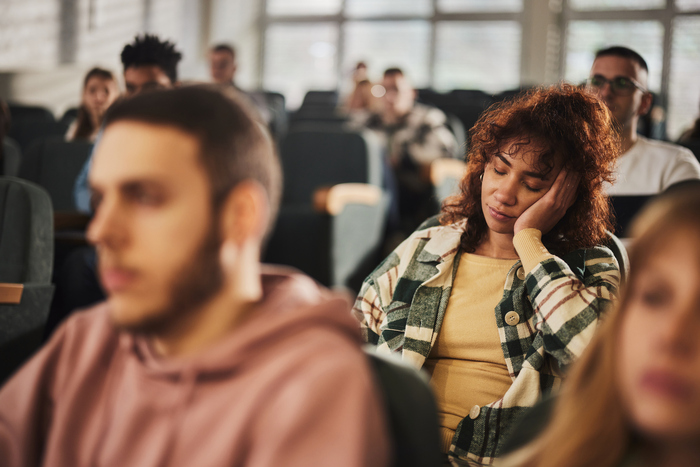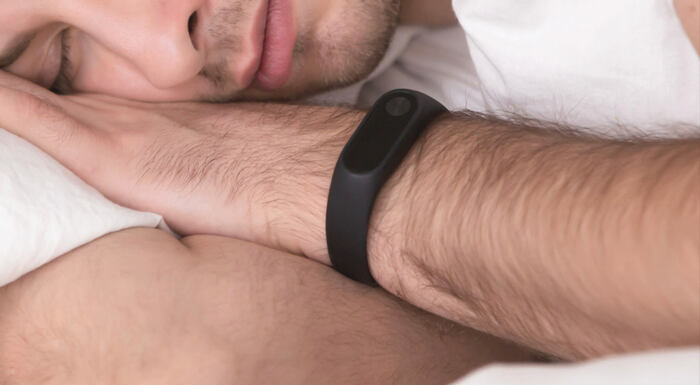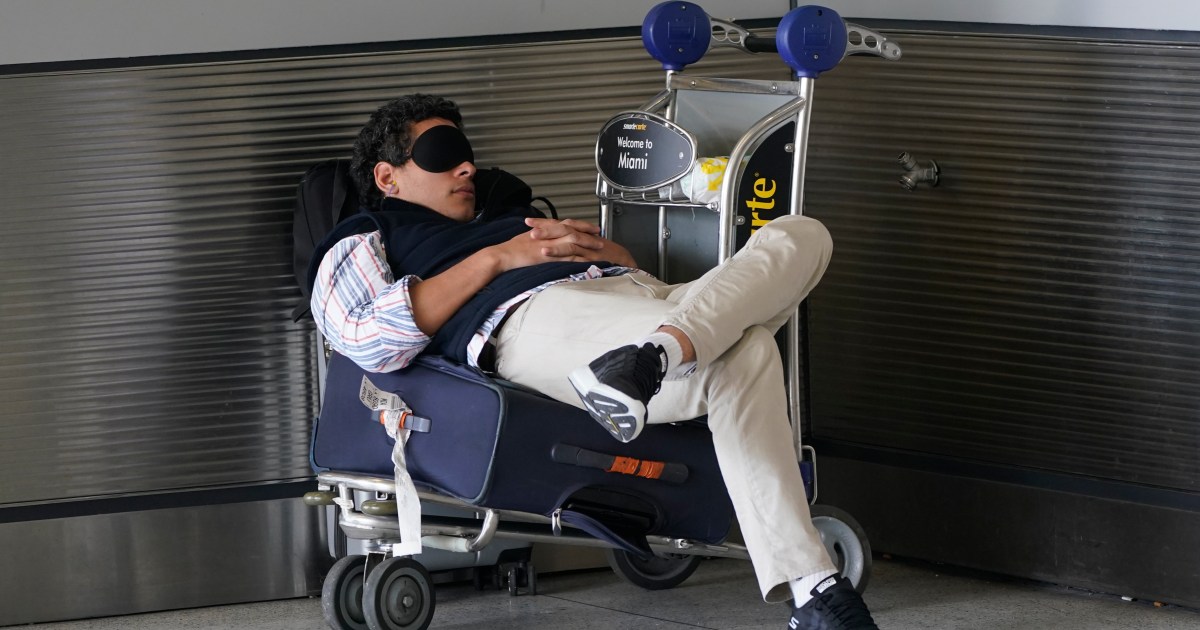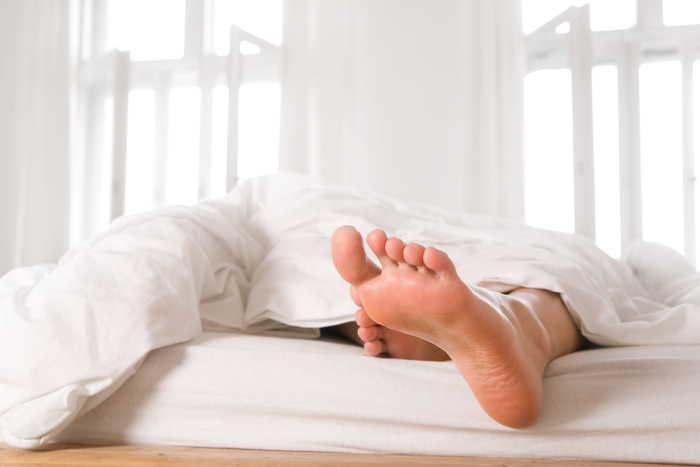- Click to share on Facebook (Opens in a new window)
- Click to share on Twitter (Opens in a new window)
- Click to share on LinkedIn (Opens in a new window)
- Click to email a friend (Opens in a new window)
If you sleep poorly, you have a higher risk of Alzheimer's 4:29
(CNN) - Air, water, food, and some would say that sex, are key ingredients for human survival. Actually, there should be another word with "s" on that list: sleep.
We are supposed to sleep seven to 10 hours a night, depending on our age, but the US Centers for Disease Control and Prevention. They say that a third of Americans sleep less than seven hours a night. It is also a global problem.
LOOK: What must you do to sleep well and have a restful sleep?
"Sleep problems constitute a global epidemic that threatens the health and quality of life of up to 45% of the world's population," according to the World Sleep Society, a nonprofit organization of sleep professionals dedicated to promoting " sleep health worldwide. ”
It is the sponsor of World Sleep Day, which in 2020 is this Friday, March 13.
However, how does someone sleep today amidst the turmoil of the coronavirus pandemic? Workplaces and schools are closing, meaning hourly workers will not receive paychecks if they cannot work and children who used to eat free lunch at schools are not fed, regardless of our concerns about the elections, the collapse of the global stock market or intensification of border or trade wars.
It is a lot, friends, but not sleeping is not going to improve things.
Lack of sleep contributes to weight gain, lack of sexual desire, a dysfunctional immune system, high blood pressure, cardiovascular disease, stroke, diabetes, Alzheimer's, depression, anxiety, and other disorders.
READ: Do you sleep little? You could get sick from the flu
However, despite these nuclear consequences for our health, we still do not prioritize sleep, even when the stock market is not collapsing.
To combat that, sleep experts from the World Sleep Society have created these Ten Sleep Hygiene Commandments for Tired Adults.
Establish a regular bedtime and wake up time
Playing with our circadian rhythm, the internal sleep clock that tells us when it's time to sleep and get up, has been linked to hypertension, insulin resistance, diabetes, and, more recently, the risk of having a heart attack or heart disease.
READ: Do you sleep late? Do you need a daily nap? What your sleep patterns say about your health
Changing your regular time to get up for 90 minutes in either direction, which many of us do on weekends, doubled the risk of cardiovascular disease over a five-year period. The more days you sleep irregularly, the greater the risk, according to a study.
"People live busy and stressful lives and don't get much sleep during the week," Dr. David Goff, director of the cardiovascular science division at the US National Heart, Lung, and Blood Institute, told CNN.
"Then they're trying to sleep over the weekend, and that's not a healthy pattern," added Goff.
Pay attention to your nap
While an occasional short nap can be healthy, the World Sleep Society's second commandment warns: "If you are in the habit of napping, don't sleep more than 45 minutes during the day."
READ: Do you sleep and sleep, but do you feel exhausted? It can be hypersomnia
One reason is because we generally go into a “deep sleep” cycle within 30 to 40 minutes of a nap. Waking up from deep sleep produces that "where am I?" Daze. which is worse than not taking a nap. A long nap can also interfere with your biological clock, making it harder to fall asleep later that night.
Overall, naps of about 15 to 20 minutes are fine, experts say, and can reduce fatigue, boost creativity, boost alertness, boost cognitive performance, and improve mood. But try to take them early in the day, before 3 pm, to avoid affecting your entire sleep cycle that night.
Alcohol and cigarette free
The third commandment is "avoid excessive alcohol intake four hours before bedtime and do not smoke."
READ: The combination of less than six hours of sleep with chronic diseases is a deadly mix
It is really a myth that a drink will help you sleep better at night. Instead, it traps you in the lighter stages of sleep and "dramatically reduces the quality of your night's rest," said Rebecca Robbins, a member of Brigham & Women's Hospital and Harvard Medical School, in a previous CNN interview.
"It continues to take you out of rapid eye movement and deeper stages of sleep, which makes you wake up without feeling refreshed," added Robbins.
Avoid caffeine six hours before bed
Here's a no-brainer: Boycott caffeine at least six hours before your normal bedtime (some experts say it shouldn't be consumed after 3pm). And caffeine is in more foods than coffee, so the World Sleep Society also warns about tea and many sodas, as well as chocolate.
Yes, chocolate. That cup of hot chocolate that you think can help you sleep could contain 25 milligrams of caffeine, while a cup of green or black tea will provide 50 milligrams of caffeine.
Avoid eating certain foods
The fifth commandment: "Avoid heavy, spicy, or sugary foods four hours before bed."
LOOK: Lack of sleep can lead to childhood obesity
Heavy and spicy foods can cause heartburn or other digestive problems, affecting your ability to fall asleep. As for sugar, studies show it's related to restless and disturbed sleep, and may possibly affect the hormones that control cravings.
A light snack before bed "is acceptable," according to the commandment. The National Sleep Foundation recommends eating a handful of walnuts, some cherries (which are rich in melatonin), a banana (containing potassium and magnesium muscle relaxants), and decaf teas such as chamomile, ginger, and mint.
Exercise regularly, but not right before bed
Surveys of vigorous exercisers by the National Sleep Foundation show that they are almost twice as likely to report regular, high-quality sleep compared to non-exercisers, and sitting for long periods of time is believed to be related to poor sleep.
While studies have not shown that exercise just before bedtime impairs sleep, many experts, such as the World Sleep Society, recommend avoiding it. Why? Because moderate exercise warms your core temperature, sending signals to the body that it's time to be awake, while the release of endorphins is believed to keep some alert.
Of course, if you are a night owl, that may not apply to you, so listen to your biological clock. For any of us, however, doing some yoga, tai chi, or light stretching before bed may help with relaxation.
Improve your sleep environment
Having the right sleep environment is so important that the remaining four commandments focus on how to do it.
READ: 12 questions and answers about sleep: can I have a sleep deficit? What causes insomnia? Is it good to nap?
First, keep your room well ventilated and choose a comfortable sleeping temperature. Science is very sure that a cold temperature is the best, so it aims at between 15 to 20 degrees Celsius.
Make sure you have “cozy and comfortable sleepwear” that fits your personal preferences (and hopefully that of any significant other you sleep with). “Block all distracting noise” (I sleep with a fan every night) and remove any light, including blue light from your charging smartphone.
While you're at it, turn off job alerts (Slack or email at 2am, anyone?). Better yet, just charge the phone outside your room.
And last but not least, "Reserve your bed to sleep and have sex." As normal as working from home in bed or playing with kids in bed seems, that doesn't teach your brain to see the room as a place to sleep.
READ: 5 tips to sleep like a baby when traveling by plane
That's right, just as your dog knows you're going to take a walk when he sees the leash, you can train your brain to associate your bed with sleep.
And there you have it. Hopefully these 10 commandments can help you separate the seas from a successful dream.
Can't you do all 10 things? Choose only one and see if you can do it. Little successes will build on each other and lead you to be happier (and more rested).
CNN's Katia Hetter contributed to this story.
Sleep dream



/cloudfront-eu-central-1.images.arcpublishing.com/prisa/C4BOJCQJZFGPJORE3TOF2IPXME.jpg)










